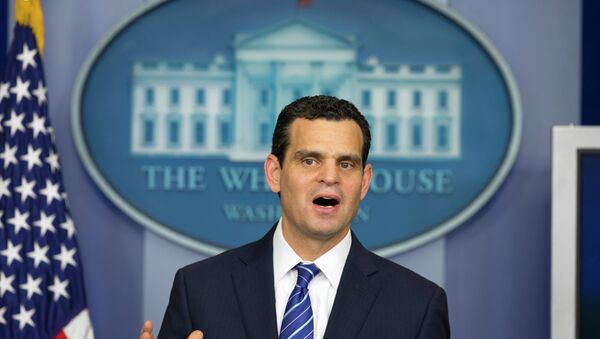David Cohen never served in an intelligence agency before his CIA appointment, but that doesn’t mean he can’t bring anything valuable to the CIA. He has an extensive history of waging what can only be described as ‘economic warfare’ against different states and terrorist groups. Accordingly, his placement in one of the US intelligence community’s top spots should be read as a clear sign of the overall direction that it’s headed in. It’s not for nothing that CIA Director John Brennan said that:
“David brings a wealth of experience on many of the issues that we focus on as an agency and I look forward to his insights, expertise and energy as we address the growing number and diversity of national security challenges facing America today”
Although cloaks and daggers are certainly still strong symbols of the intelligence trade, more accurate in today’s world might then be stocks and sanctions, which can be equally as effective (if not more) in advancing some of the US’ most critical covert interests.
More Than Meets The Eye
Gone are the days when all intelligence agents lurk in the shadows or press their ear to a wall to eavesdrop. In fact, such representations are stereotypical mostly of novellas and films, since most intelligence activity no longer takes that form (although some undoubtedly retains those features). Instead, many spy agency employees sit in offices and perform research and analysis, using a combination of open- and closed-source intelligence to help unlock vulnerabilities that the US can exploit. In today’s world, these aren’t just symmetrical military ones such as where such-and-such missiles or tanks are located, but more asymmetrical ones like structural economic weaknesses, which are precisely what Cohen was tasked in dealing with.
Bankruptcy, Not Bombs
Just as Sun Tzu wrote that “supreme excellence consists in breaking the enemy's resistance without fighting”, so too does the US seek to use non-military means in crushing its targeted foes, and economic warfare is the perfect way to accomplish this. Nowadays the US is engaged in hot and cold hostilities with a variety of opponents, ranging from the bombing campaign against ISIL to the ‘New Cold War’ against Russia. Let’s take a look at how economic warfare configures into each:
* ISIL
The world’s richest terrorist group has been raking in millions through oil sales, ransoms, criminal activity, and misuse of legitimate financial channels, and it was Cohen’s previous job to help put a stop to that. Although he didn’t make much of a dent in their funding, the guiding idea was that if the terrorists could be cut off from their money, their military capabilities would suffer and they’d also be less able to ‘win the hearts and minds’ of the people living under their occupation. None of this worked out as anticipated (and whether it was meant to in the first place is a subject of debate), but the US is still standing by the idea that terrorism can be fought using economic means.
* Russia
Another failed example of the policies that Cohen was previously responsible for administering, yet one that is still ascribed to by American and European officials today, is that targeted sanctions against Russia or any other state can lead to favorable changes in their foreign and/or domestic policies that would support American strategic objectives. This has never been the case, but indirectly, the manipulation of a country’s overall economy can actually have serious repercussions for its leadership and stability. Externally manipulated economic attacks on a country, such as stimulating a stock crash or a massive currency inflation (like in Venezuela nowadays), can substitute as a new type of ‘bombing run’ in attacking one’s enemies short of declaring an actual hot war.
The Spy Of Tomorrow
This new understanding of espionage and intelligence also brings about a redefinition of what spying looks like. The US’ paranoia about the recent ‘spy’ case in New York (which is an administrative violation of the Foreign Agent Registration Act and not actually espionage) illustrates this perfectly. Although the case has been blown out of the water for political purposes, it demonstrates that economic intelligence is forming a key component of the information that companies and countries are trying to procure about one another. After all, many major companies try to do whatever they can to gain a competitive advantage over their rivals (whether their actions are legal or not in the host state), but when this spills over into the international field or involves country-on-company activity, only then is it typically described as ‘spying’. Therefore, the CIA’s ‘spy of tomorrow’ (or even today) may not be walking around in a trench coat, gun in hand, conspiring to break into some building, but rather may saunter into a foreign office, briefcase in hand, as a legitimate employee with illegitimate intentions.





